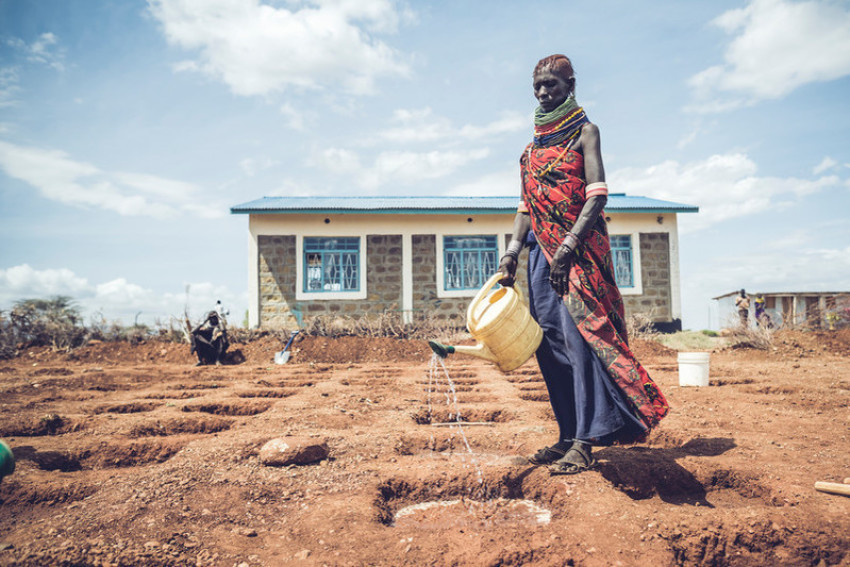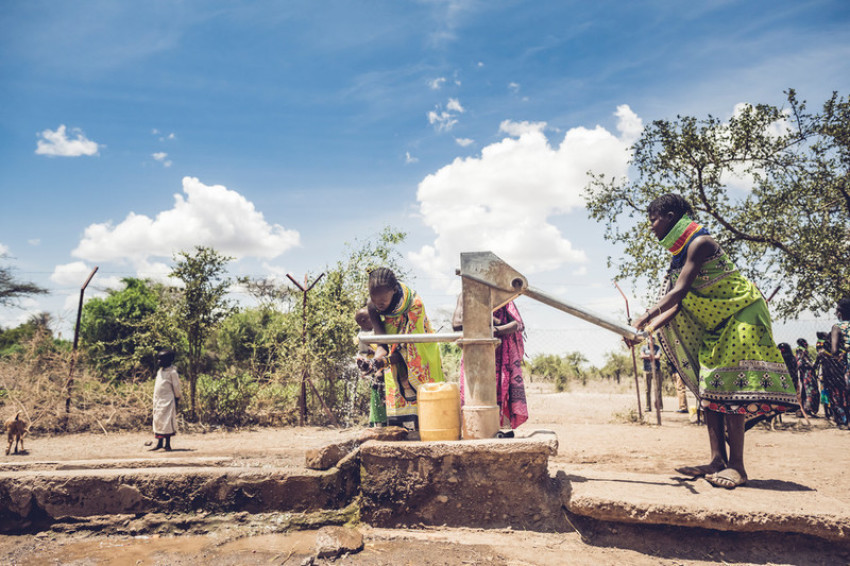Evangelical charity offering long-term solutions amid Africa's devastating drought

A global Christian humanitarian organization is using its network of churches to assist Kenya during one of the most devastating droughts to hit East Africa in over half a century, the effects of which are compounded by challenges caused by Russia's invasion of Ukraine.
World Relief, a nongovernmental organization that has worked across 100 countries to bring sustainable solutions to vulnerable regions, is operating in the northwest Kenyan county of Turkana as a drought has plagued the country for the past 18 months.
Founded as the War Relief Commission during World War II by the National Association of Evangelicals of America, World Relief has maintained a long-term presence in the East African country since 2011, when drought and famine last ravaged the area.
In an interview with The Christian Post, World Relief Kenya Country Director Elias Kamau said many in Turkana are nomadic pastoralists, meaning they migrate with their livestock from one place to another in search of pasture.
The drought has caused the depletion of many water sources in pastoralist areas and 60% to 80% of livestock in the region have died due to dehydration and starvation.
"The work we have been doing there in moisture-constrained areas has had to do with building the resilience of these communities because the drought has become a very frequent thing," he said. "The pattern is not frequent, but droughts are coming now and then."
Kamau said World Relief has created over a dozen boreholes in Turkana — narrow holes dug to locate water — and six other water points called sand dams. These dams store water during rainy seasons and the water accumulates behind the dam.
The organization is also digging four additional boreholes in a town south of Nairobi called Kajiado. The country director told CP that equates to 16 boreholes and six sand dams that World Relief has dug.
After establishing water points, the organization helps communities in those regions adapt to dryland farming, an agricultural technique that utilizes moisture stored in the soil to cultivate crops.
In addition to operating a country office in Nairobi with about 12 staff, World Relief also has two offices in Turkana, three in Kajiado and Nakuru, a Rift Valley region in Kenya. World Relief has about 64 staff on its payroll in Kenya, with about two dozen on staff in Turkana County.
World Relief partners with churches that provide volunteers that the organization trains to do extension work and help cover more areas in need.
Church empowerment zones
World Relief finds areas to help by assessing the level of need. When it enters an area to offer relief, the charity locates churches, inviting pastors and other church leaders to craft what the organization calls a "church empowerment zone."
These zones equip pastors or other spiritual leaders to work with their communities to address issues like poverty or malnutrition through leadership development and capacity building.
"We cut out a geographical area as a whole, and we style it as a church empowerment zone — the place where we are going to bring all our resources to be able to see change, to see impact," Kamau asserted.
Since an area like Turkana is quite large, Kamau said World Relief parcels these zones into smaller sections called church networks. These networks are within neighborhoods that have what Kamau estimates to be around 25 churches of different denominations.
World Relief establishes a committee consisting of people from various denominations who help them navigate issues around the area and act as representatives of other churches within the area. Turkana is one of three church empowerment zones the humanitarian group operates in Kenya.

'They need food now'
World Relief also imports food such as rice, wheat and corn to feed the people of Kenya.
Kamau said that World Relief is injecting cash into the economy by putting an unconditional cash transfer project together to avail half a basket load of food rations for the poorest families in the northwestern parts of Turkana.
According to the country director, this area of Turkana is among the hardest-hit areas they serve.
Kamau identified the cost of the cash transfer project at around $650,000, adding that the agronomy projects are worth about $500,000.
He praised churches in the U.S. and abroad for providing aid to World Relief's projects as part of an agreement to help the organization support specific communities for around three to four years.
"That has helped us in terms of putting in place the training and the capacity building of the pastors unit and integrating the community development aspects which public funding couldn't possibly do," Kamau said.
"It is very critical we focus on saving lives," he added. "People are hungry. They need food now."
Russia's Feb. 24 invasion of Ukraine has added to the hunger crisis, leading to increased prices of food and fuel.
"So you have a situation where access to food is a huge, huge problem," Kamau stressed.
As CBS News reported Monday, Russia's naval blockade of Ukraine has caused global food shortages and more than 20 million tons of grain are stuck on Odesa's coast. The blockade has had a particularly strong impact in Africa, extending far beyond Kenya.
The World Food Programme noted that the cost of food baskets has risen in the Horn of Africa, with prices rising by 66% in Ethiopia and 36% in Somalia. The charity also warned that the number of people starving in the Horn of Africa due to the drought could rise from 14 million to 20 million by the year's end.



























